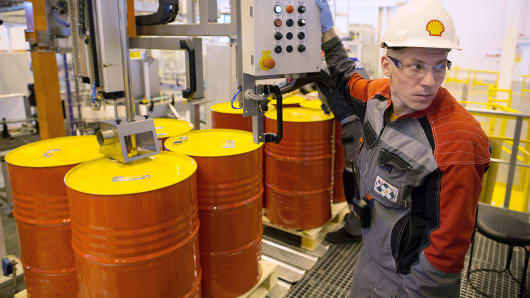The drone attacks on Saturday against the world’s largest oil processing facility in Saudi Arabia by Yemeni rebels could precipitate a bump in oil prices as 17 percent of global oil production has been shut-in.
The attacks cut 5million bpd to itsoutput this month from a facility that processes sour crude oil into sweet crude then transports them onto transshipment points on the Persian Gulf and the Red Sea. Estimates suggest it can process up to 7million barrels of crude a day.
This drone strike will not only heighten tensions in the Persian Gulf adding to the geopolitical risks from the confrontation between the United States and Iran over a disagreement with a nuclear pact it had with world powers, it could lead to higher oil prices.
A Saudi-led coalition has been battling rebels since March 2015 in Yemen and has caused massive humanitarian crises. Over 90,000 people have been killed since 2015 according to US-based Armed Conflict Location & Event Data Project which tracks the conflict.
Oil markets are expected to react to this crisis as they have always been susceptible to geopolitical risks especially from the Middle East.
The decision to boycott America and punish the west for their support to Israel in the Yom Kippur war against Egypt led the price of crude to rise from $3 per barrel to $12 by 1974.
Analysts do not see this attack leading to a 1970s style price hike, but it could lead to temporary spike.
“Taking out 5million bpd is a lot, this will definitely impact oil prices,” says Ayodele Oni, energy lawyer and partner at Bloomfield Lawfirm.
The attack did not immediately have an impact on global oil prices as markets were closed for the weekend across the world. Benchmark Brent crude had been trading at just above $60 a barrel.
What it means for Nigeria and other producers
The attack has led to a shut-in of 71 percent of expected Saudi output in September which will constrain its ability to meet loading schedules and about 17 percent of OPEC oil production of 29.61 million bpd in August.
Saudi Arabia’s North American customers may not receive their all their 300,000 bpd orders as well as other customers across Europe and this will mean that Nigeria and other producers have to step in.
Oni said that Nigeria should ensure that it keeps production stable to be able to meet expected demand shortages from Saudi Arabia.
Last month, OPEC’s largest producers Iran, Iraq, Kuwait, Saudi Arabia, and the United Arab Emirates—which account for three-quarters of the cartel’s total production—shipped 15.73 million barrels of crude oil per day on average in August—an increase of 736,000 barrels per day over July levels.
A survey by oil markets analytics firm, S&P Global Platts found that Nigeria which has often pumped more than its cap and hit its highest production level since January 2015 of 1.98 million bpd in August.
Production was 1.93 in July. The addition of condensates put the figure at 2.2 million bpd.
OPEC in its September monthly report has cut its forecast for oil demand for the remainder of this year by 80,000 barrels from August projections to 1.02 million bpd due to an economic slowdown and fears of a supply glut.
In 2020, OPEC said it sees world oil demand increasing by 1.08 million barrels per day, which is 60,000 bpd less than what its forecast last month.
OPEC said this bearish trend justifies on-going efforts to prevent a new glut of crude
This new development puts a shadow on this forecast at least in the short term.
Culled from BusinessDay
